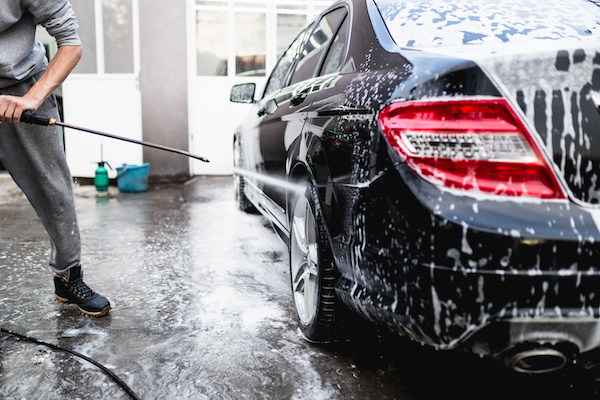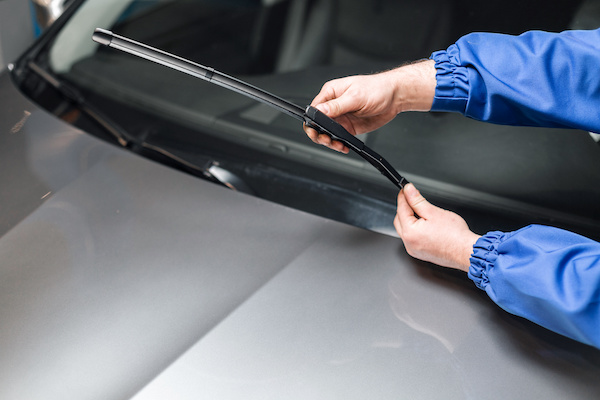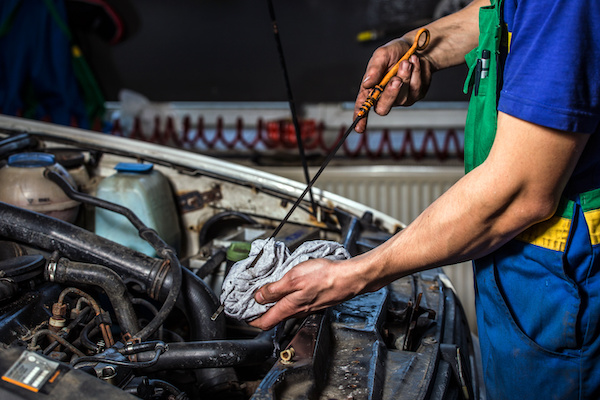Posted on 12/22/2021

With winter steadily approaching, it's crucial to make sure your car is ready to weather any type of storm you encounter. With temperatures dropping, it's important to make sure your vehicle is properly serviced to keep you and your passengers safe. There are certain things you want to check in your vehicle to make sure it's safe for any type of weather - this article will help you figure out what needs servicing and when. Inspect Your Battery Batteries typically have a lifespan of about five years. Because of this, it's important that it's one of the first things checked when you have your car serviced. If you are on the tail-end of your battery's lifespan, you could find yourself in a very difficult situation should it fail in the cold. It will give you peace of mind knowing that your battery is in great shape before the winter season hits. Ensure Your Engine Coolant is Full When you're topping up your ... read more
Posted on 11/29/2021

If you own a Mercedes-Benz, you're already lucky as is; but if you have a driveway, you're even more fortunate. Without a doubt, you should be taking advantage of the opportunity and hand-wash your car at your convenience. Here are some of our top tips on how to perfect your car wash! Always use a microfiber cloth. Using a scratchy t-shirt or coarse rag to scrub on your Mercedes-Benz is every enthusiast's worst nightmare; they can put scratches on your vehicle, so avoid anything other than microfiber if you can. Use the two-bucket approach. The technique does matter when you wash your car. You should keep one bucket for the dirty soap and water and the other for clean and clear water. Using this system can ensure that you aren't reapplying dirt and grime onto your Mercedes-Benz from the dirty bucket of water. Don't forget about the interior. You might be tempted to stop after cleaning the outside of your car, but the inside is just as important. Over time ... read more
Posted on 10/27/2021

Windshield wipers are an essential part of our Mercedes-Benz; however, their owners often overlook them. Wiper blades ensure your safety by helping you see clearly when you drive in rain, snow, or fog. But, wipers can be very disturbing after they've lost their effectiveness. This is why you must stay on top of when these blades need to be replaced. Some symptoms of aging wipers include skittering, streaking, or squeaking. Ultimately, your wipers will end up impairing your vision instead of helping it if you leave them for too long. Experts recommend that you should swap them out every six months to a year. You can elongate the intervals by taking care of your wipers and following these tips: Clean your windshield! Wiping your windscreen regularly will eliminate any debris present on that glass surface that could stick to your wiper blades. Clean your wipers. The more you use your wipers, the more it will collect dust and dirt. You can wipe the rubber parts to preserve the ... read more
Posted on 9/28/2021
.jpeg)
Q1: What Do Spark Plugs Do? A1: Spark plugs, as the name implies, are little metallic pieces that provide the initial spark that starts the engine's combustion process. You need functional spark plugs to start your Mercedes Benz. A healthy set of spark plugs are necessary to keep the motor running correctly and efficiently. Still, over time, unburnt gas and oil can lead to an accumulation of rubble and residue that will make it more troublesome to start your vehicle. When this happens, you should replace them as soon as possible. Q2: When Should You Replace Spark Plugs? A2: Keeping up with your vehicle's maintenance is not as hard as you think. Spark plugs are a vital part of your vehicle maintenance, even though it is not done as often as your oil changes and tire rotations. Generally speaking, spark plugs will usually last for 100,000 to 120,000 miles. However, you can also check your Mercedes Benz's owner's manual for an exact interval number. Q ... read more
Posted on 8/30/2021

Staying on top of your auto maintenance schedule can help you discover minor issues before they turn into extensive and costly ones — and one familiar trouble most drivers run into is filthy and contaminated engine oil! You'd probably be shocked to know that dark and dirty engine oil isn't always an alarming symptom. Let's go over what causes oil to degrade, what's expected, and what's not. What Are the Common Causes of Dirty Engine Oil? Over time, your oil filter can collect dirt, debris, and a whole lot of gunk. All these contaminants can cause your engine oil to become polluted. The collection is expected, but you should exchange the oil and oil filter once the oil becomes contaminated. Dirty oil can bring harm to your car by damaging engine components, decreasing fuel efficiency, and even causing a complete breakdown. Other notable causes of dirty oil include too long intervals between oil changes, engine wear and tear, and operating a vehicle wi ... read more
Posted on 7/26/2021

Mercedes-Benz is an automobile name that is known for its class, luxury, and performance for decades. At MBClinic, we have highly experienced and specialized technicians trained to take the best care of Mercedes-Benz. As a specialty shop, we'd like to inform you of all of these essential maintenance tips that will keep your Mercedes-Benz running efficiently and smoothly for the summertime. Get Your Oil Change Your engine is more likely to overheat in the summer than any other time of the year, which is why it is so crucial to be observant of your oil levels. To avoid troubles in your Mercedes-Benz's lifetime, you should always take your in for regular oil changes. Getting into this habit will ensure optimal performance and maximize your gas mileage. Other Fluid Changes You may be used to only examining your fluids whenever you get that dashboard reminder to do so. However, it is best to check the levels at least every couple of months or even once a month. Y ... read more
Posted on 6/28/2021
.jpeg)
It is not normal for a car to rattle and produce clunking noises when moving. That mainly occurs in vehicles with suspension issues when they go over bumps, rough roads, potholes, and rocks. A problem like that can be frustrating and put you at risk. A vehicle's suspension is an assembly comprising of many components, and one can wonder what might be causing the clunking sound. We've discussed some of the causes below so that the next time you hear the rattling sound; it'll quickly occur to you what might be the problem. Worn-out Shocks and Struts A vehicle's shocks and struts play a crucial in its performance and handling. Their primary role is to absorb vibrations and shocks when the car vibrates and bounces on a rough track. They also help keep the tire in constant contact with the road. Continuous lack of damping can cause severe wear, which leads to pronounced bouncing and rocking when the car moves. Additionally, you'll hear clunking noises when you go over ... read more
Posted on 5/27/2021
.jpeg)
A radiator flush is a process of draining all coolant or antifreeze and replacing it with fresh coolants. Engines run incredibly hot and need some form of external cooling. Radiator liquid, in the form of coolant or antifreeze, is used to cool the engine. It's imperative to keep the coolant fresh and clean to keep the car from overheating and maintaining the radiator. A radiator flush is routine maintenance to keep the radiator healthy and should be performed on a semi-regular basis. Over time, debris and other contaminants build up in the coolant system. Corrosion, rust, and other debris accumulate in the radiator and the surrounding coolant system. This debris needs to be removed, or you could end up replacing your entire radiator. Here's where a radiator flush comes in. A radiator flush involves injecting cleaner, water, and new antifreeze through the coolant system to remove any harmful buildup. Directly draining the antifreeze or coolant will not remove all the harmful con ... read more